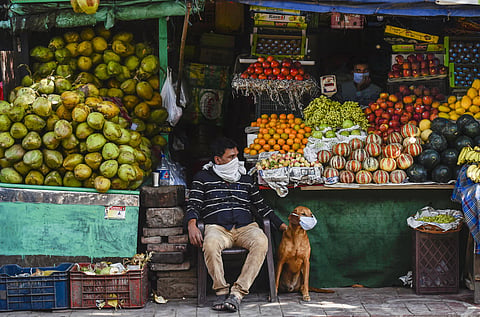

NEW DELHI: Even as the Centre exempted neighbourhood stores — including those selling garments, mobile phones, hardware and stationery items — from the ongoing nationwide lockdown, most states such as Tamil Nadu, Rajasthan, Maharashtra, Delhi and Karnataka aren’t expected to give permissions soon, say traders’ associations. Retailers have also sought more clarification from the government on the guidelines, as terms like ‘market complexes’ could be misunderstood.
“It is now the onus of the state governments to issue necessary permissions to implement the Central government order. While traders welcome the revised guidelines, we believe not many states will be willing to take such a step immediately other than a few like Odisha and Goa,” said Praveen Khandelwal, general secretary, Confederation of All India Traders (CAIT). The apex body of traders represents seven crore traders and 40,000 trade associations of India.
Amending its April 15 order, the Ministry of Home Affairs on Saturday clarified that “all shops, including neighbourhood shops and standalone shops, shops in residential complexes, within the limits of municipal corporations and registered under the Shops and Establishment Act of the respective State and UT” are allowed to open. But those located in market places, shopping malls and COVID-19 hotspots and containment zones, will continue to remain shut till May 3.
“While allowing the opening of more shops is a move seen as a relief to most people, we feel the current circular is open to interpretation and needs more clarity for easier implementation. Terms like ‘market complexes’ are not easily understood,” said Rajagopalan, CEO of Retailers’ Association of India. Lack of clarity could hold back local authorities to issue necessary permissions, delaying the reopenings.
A majority of India’s 720 districts remain in the red zone. The recent order also implies that in rural areas, all shops are allowed to open.
But restaurants, hair salons, liquor and cigarette shops will stay closed as they render services and do not fall under the category of ‘shops’. Industry bodies also pointed out that the delivery of non-essential goods through e-commerce should also be allowed to ease the burden of piled up inventory of small traders while also meeting customers’ demand.
“While the latest move is in the right direction and has been taken keeping in mind to minimise risks and maximise economic activity, we believe e-tailers dealing in non-essentials should also be allowed to operate at least in a phased manner,” said Pankaj Mohindroo, chairman of India Cellular & Electronics Association.